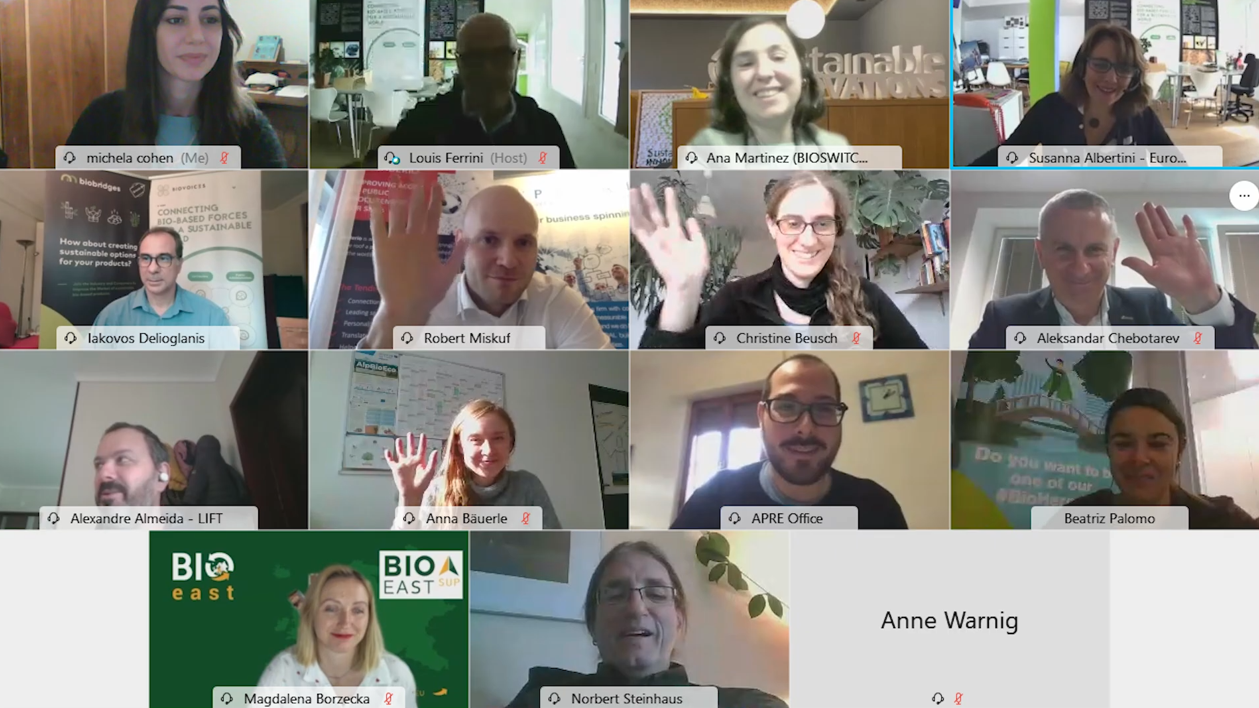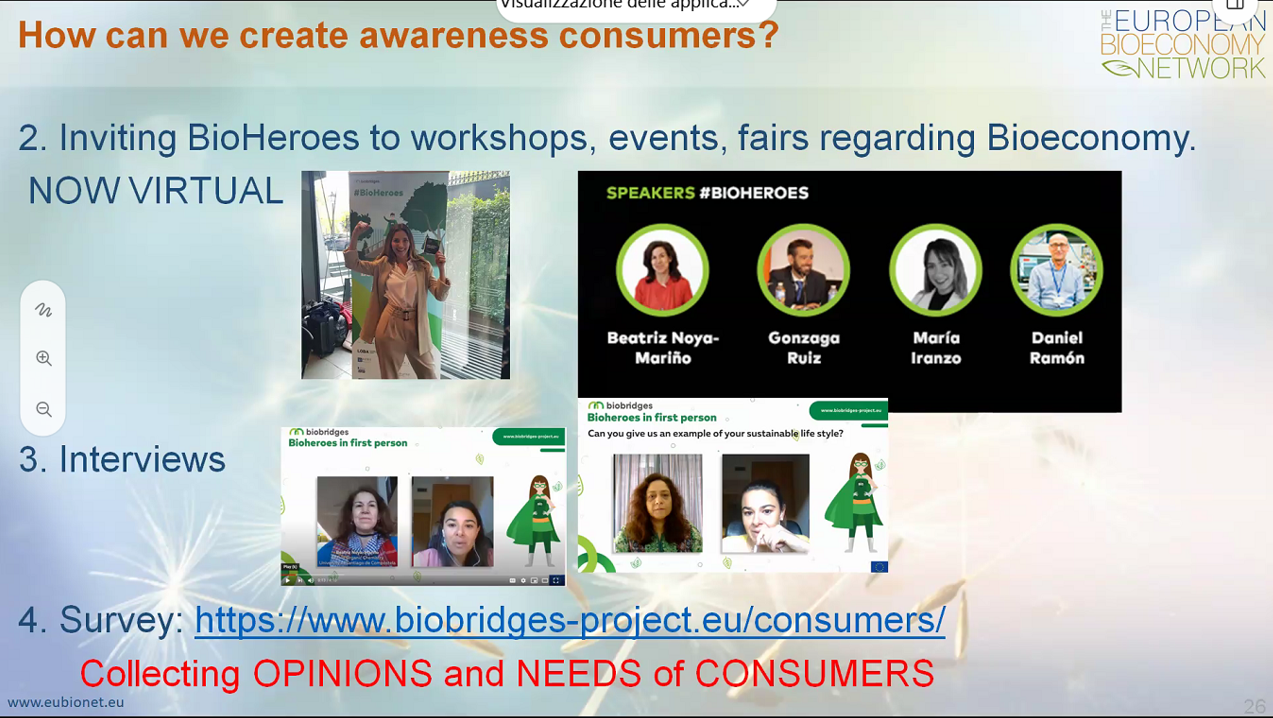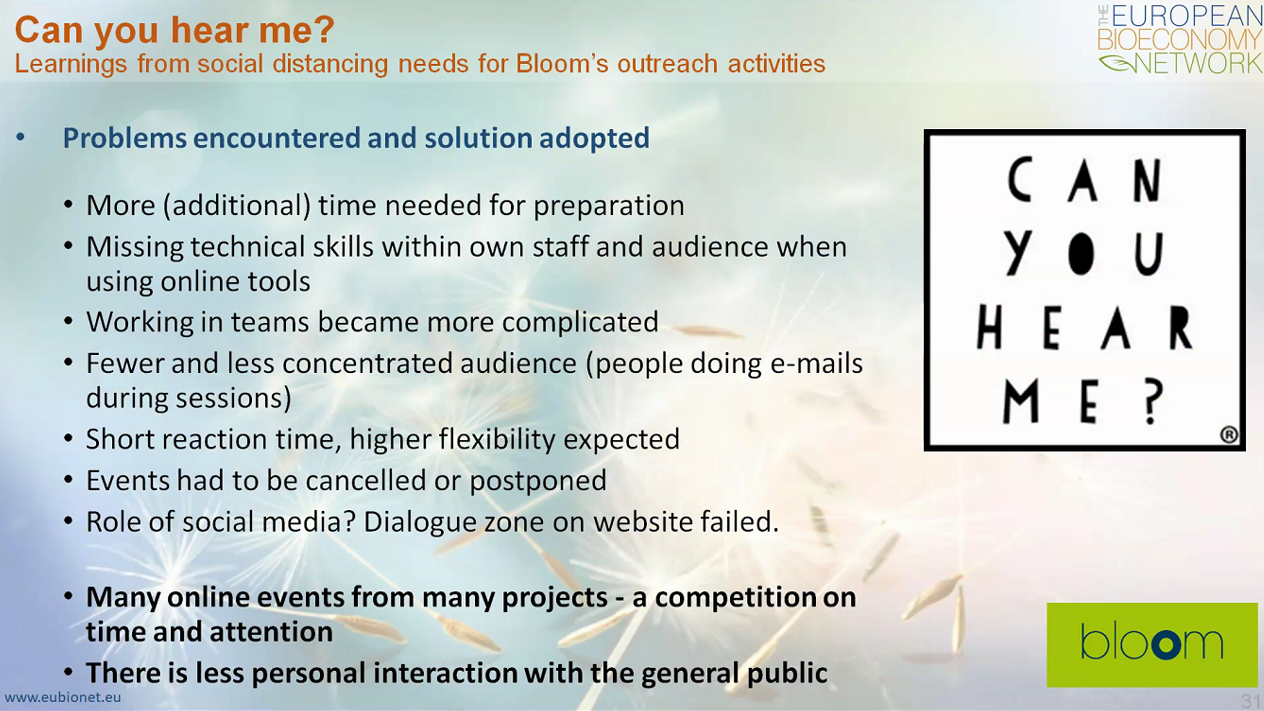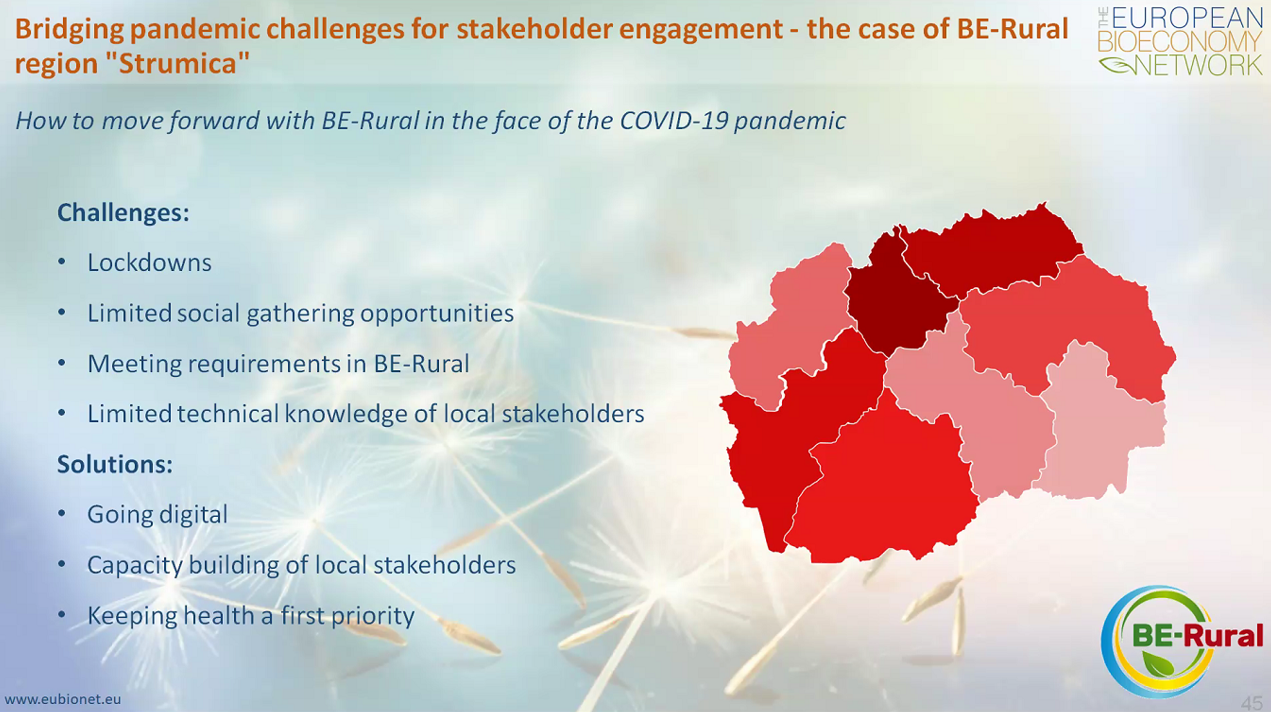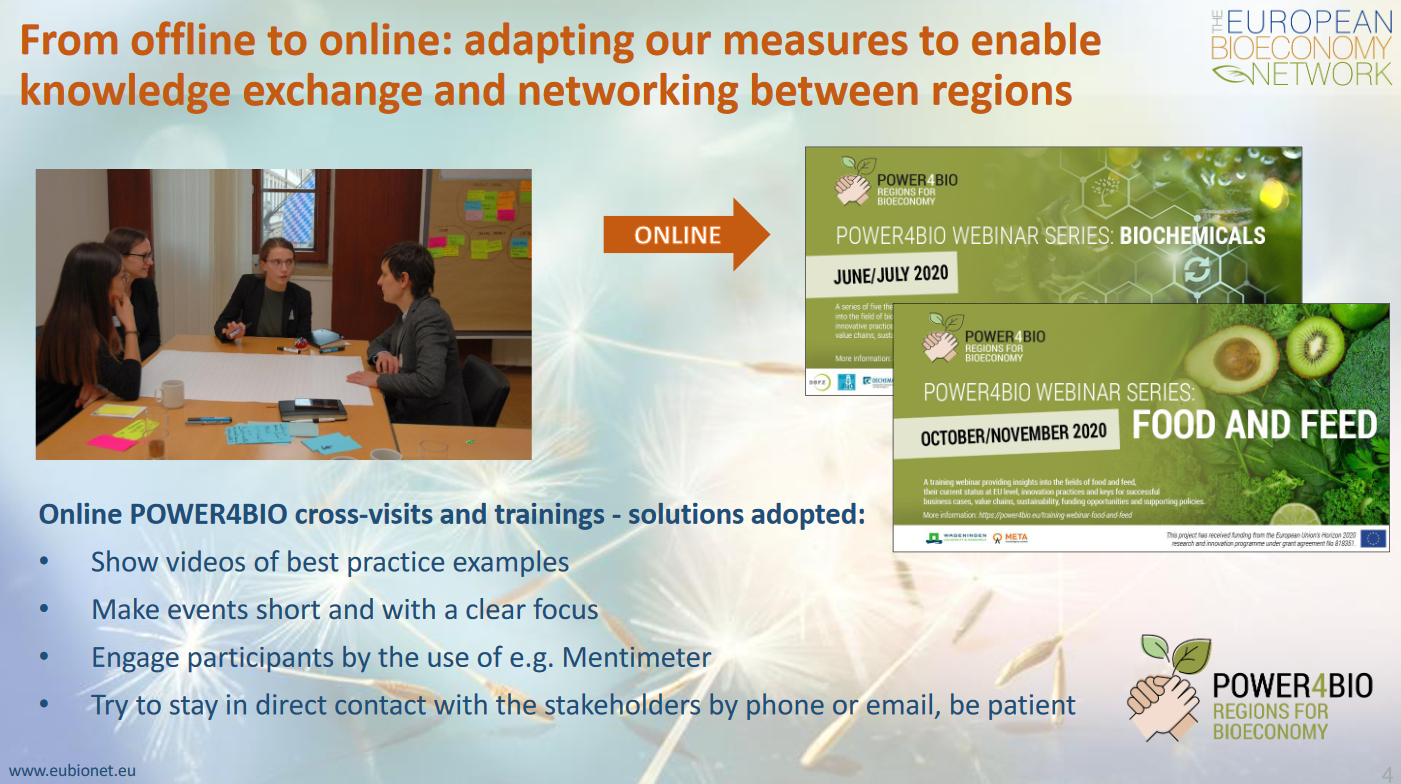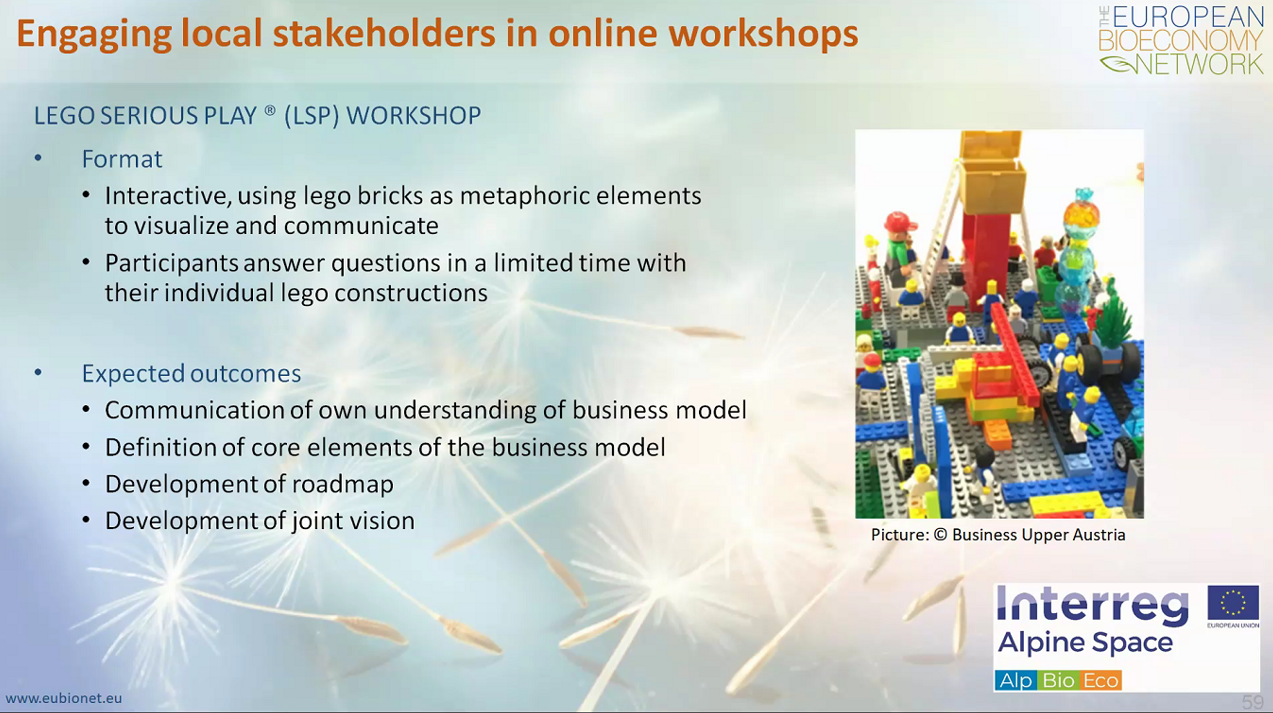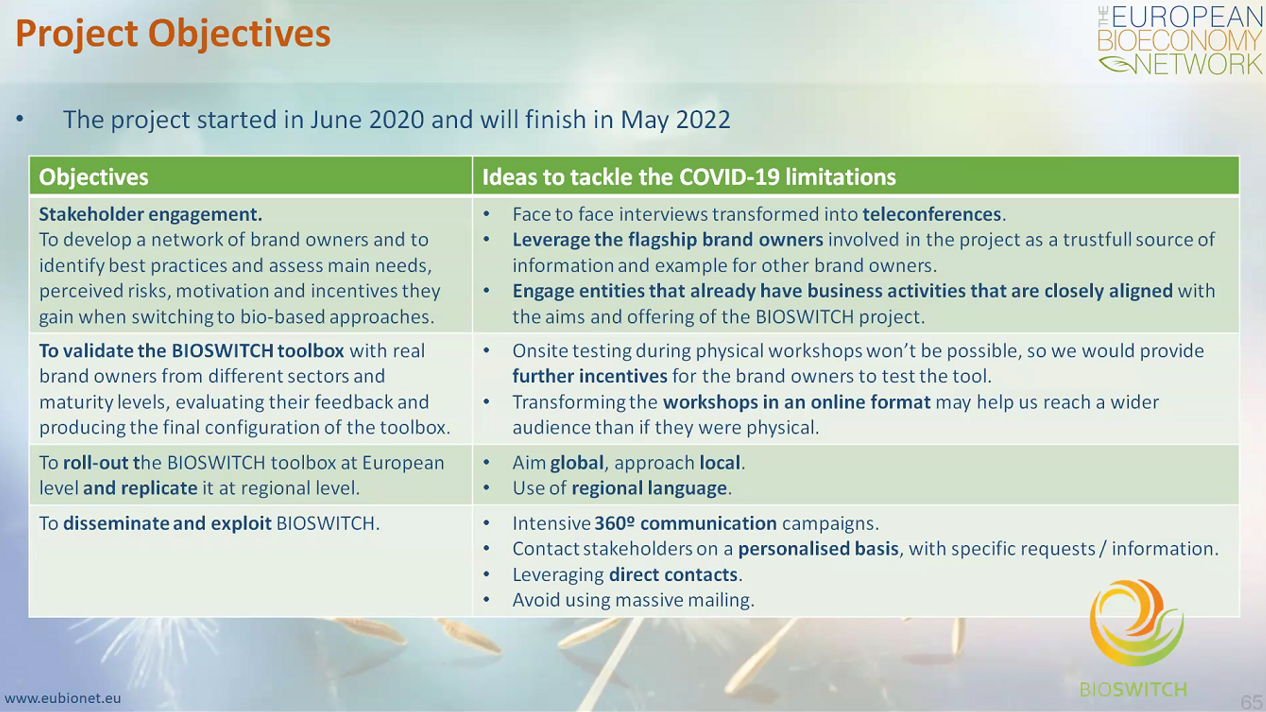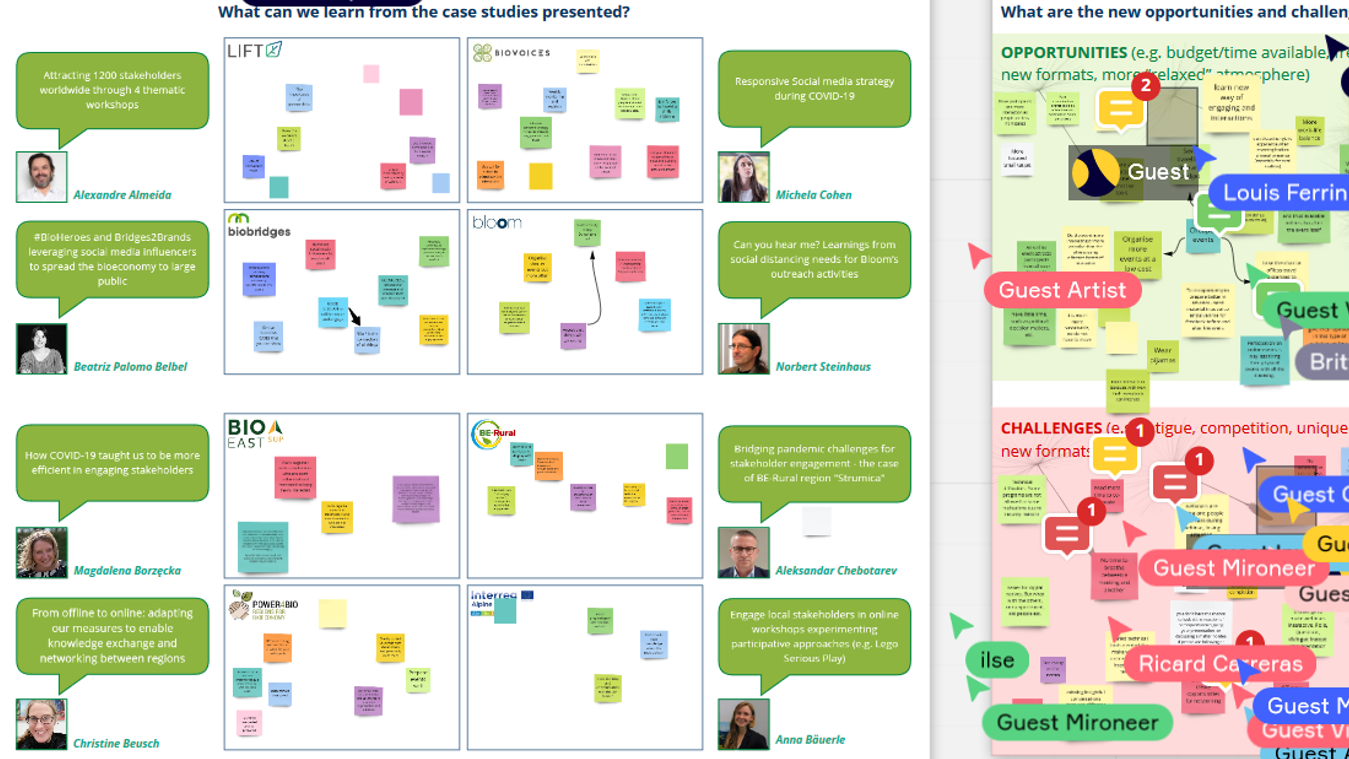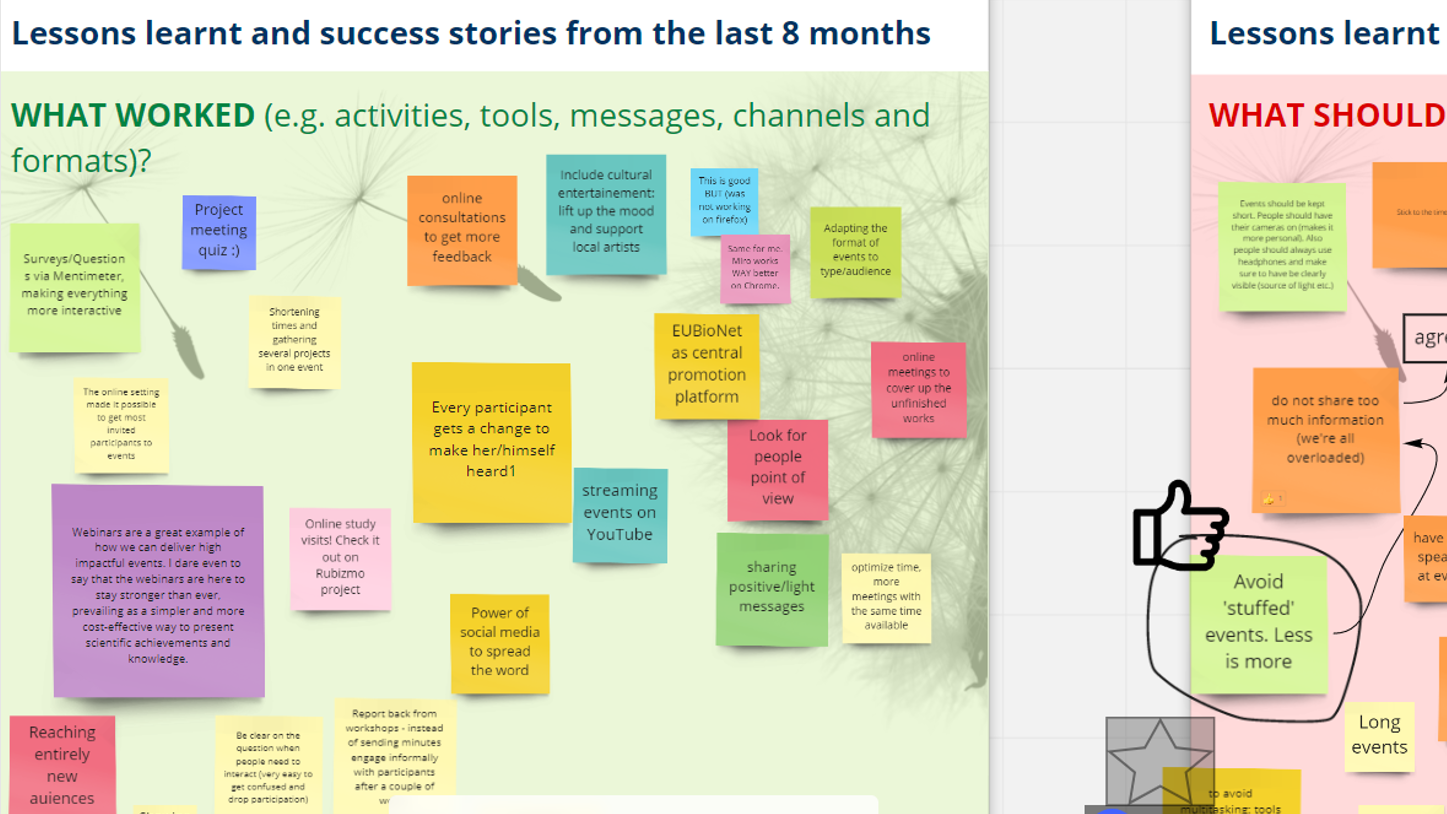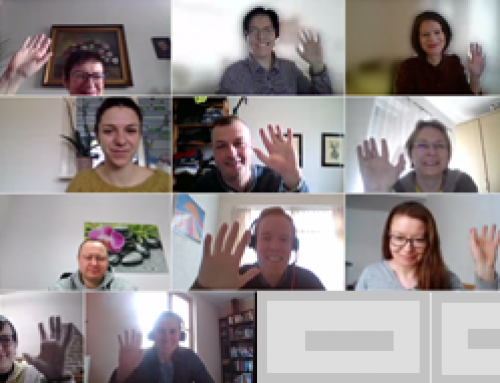POWER4BIO contributed to EuBioNet workshop on communicaton and stakeholder engagement in COVID-19 times
November 11, 2020
On November 11, the European Bioeconomy Network (EuBioNet), network of more than 60 bioeconomy projects funded by the European Commission, held its annual partners’ workshop “Bioeconomy Communication and Stakeholders’ engagement in times of COVID-19”. Due to the current COVID-19 pandemic, project routines have changed dramatically as almost all physical and in particular international meetings were transformed to online events. Within the EuBioNet workshop, eight CSA projects (Coordination and Support Action) presented case studies about how this change over affected their work how they have changed the way they deploy their communication and stakeholders’ engagement activities to respond to the new reality.
Christine Beusch, work package leader for communication and dissemination in POWER4BIO, has presented the experiences of the last eight months within POWER4BIO in the case study “From offline to online: adapting our measures to enable knowledge exchange and networking between regions”. Within POWER4BIO, the knowledge exchange between the ten participating regions plays a crucial role to support the regions in revising their existing or developing a new regional bioeconomy strategy. One of the main formats of mutual learning are the so called cross-visits, where all regional partners of POWER4BIO meet together with local stakeholders in one region and learn about this region’s bioeconomy status, best practice examples and the state of bioeconomy strategy development. Another format are the POWER4BIO trainings that were intended to take place physically before or after selected cross-visits. As the COVID-19 pandemic made both formats impossible in their original form, the POWER4BIO consortium decided to change all events from offline to online.
The cross-visit to Lviv, Ukraine, in May was the first cross-visit that took place online with more than 35 participants. Other cross-visits to Central Germany, Nitra, Slovakia and Andalusia, Spain followed. Two more virtual cross-visits will be organised to South Bohemia, Czech Republic in November/December and to Mazovia, Poland, in January.
Also, the training format was transformed from a one-day workshop to a series of several one to two hour webinars. In June and July, the POWER4BIO webinar series on biochemicals with five thematic training webinars took place, followed by the webinar series on food and feed with eight training webinars in November. In December, the third POWER4BIO training webinar series on bioenergy will be organised with a total of three webinars. And in January, the last training will comprise a lot of information on bio-based materials. Most of the recordings of the cross-visits and the training webinars can be found on the POWER4BIO YouTube channel.
Problems we have encountered with the online format of our events are the impossibility to visit field sites of best practice examples, the lack of interaction between participants, the high competition between numerous interesting online events and the “ghosting” of some stakeholders, that seemed to disappear, mostly due to organisational challenges of the COVID-19 pandemic for their enterprises. However, we have managed well to stay in good contact with most of our stakeholders.
The solutions we have adopted to tackle the challenges of the current situation are to show pre-recorded videos of best practice examples thar we share in our online events. We are also trying to engage our participants by the use of interactive tools like Mentimeter, and we also try to make our events short and with a clear focus. We are trying to stay in direct contact with our stakeholders by phone or by email and to be patient if their response takes some time.
Our recommendations for online events are to prepare events well, to make at least one, better more test runs with all presenters before the event to become familiar with the tools used. We are doing our best to offer interesting content that is of value for our participants. We also recommend disseminating events well in advance by sharing it on our own social media channels and asking related initiatives to share this information. Of course, we also directly contact our most important stakeholders and invite them personally. And always expect the unexpected and be prepared!
After the presentation of eight inspirational case studies of LIFT, BIOVOICES, Biobridges, BLOOM, BIOEASTsUP, BE-Rural, AlpBioEco and POWER4BIO, colleagues of the new projects Allthings.bioPRO, BIOSWITCH and Transition2BIO presented their ideas on what they are planning to deal with the COVID-19 situation in their communication and stakeholders engagement activities. Here you can download the slides of all presentations.
The short presentations were followed by an interactive Miro session, where all 75 participants of the workshop were asked to contribute their experiences and lessons learned from the last eight months. What are the opportunities and the challenges of online formats? What worked and what should be changed? And how can the EuBioNet contribute to increasing the impact of projects’ activities? Also, an action plan for the next eight months, including the upcoming activities of several bioeconomy projects, was created. Finally, all participants agreed that the cooperation within the EuBioNet should be intensified to increase the knowledge exchange between bioeconomy projects.
Here you can watch the video recording of the workshop:


